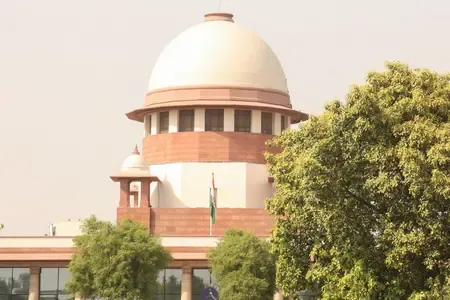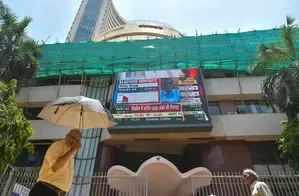Will the SC Address the PIL for Restitution of Unclaimed Financial Assets to Their Legitimate Heirs?

Synopsis
Key Takeaways
- Supreme Court to review PIL on unclaimed financial assets.
- Assets estimated at Rs 3.50 lakh crore.
- Call for a centralized portal for asset retrieval.
- Focus on the rights of vulnerable populations.
- Potential reforms in financial asset management.
New Delhi, Oct 6 (NationPress) The Supreme Court has consented to review a public interest litigation (PIL) related to unclaimed financial assets across India, which are estimated to total around Rs 3.50 lakh crore.
The petition requests that the Union government, Reserve Bank of India (RBI), and other relevant authorities create a robust legal and institutional framework aimed at identifying, reconciling, and returning unclaimed financial assets to their rightful owners or heirs.
A Bench comprising Justices Vikram Nath and Sandeep Mehta has issued a notice, seeking replies from the Centre, SEBI, IRDAI, EPFO, National Saving Institute, and other involved parties.
The PIL states that unclaimed financial assets—including dormant bank accounts, unclaimed dividends, matured insurance payouts, unpaid provident fund amounts, and unutilised mutual fund units—are distributed across various financial institutions, lacking a cohesive method for retrieval.
“These unclaimed financial assets have amassed mainly due to the lack of a centralised portal accessible at one location across the regulated entities under the respondents (authorities). This portal would enable individuals or their nominees, upon submitting KYC information, to access essential details regarding their financial assets such as bank deposits, shares, dividends, insurance, and pension funds,” the petition elaborated.
It further noted that unclaimed assets also stem from the absence of mandatory guidelines for maintaining nominee details for each individual's financial assets, which remain unclaimed due to insufficient information or access.
“This lack of action has led to a dearth of systematic information, which severely disadvantages the general population, particularly vulnerable groups,” the petition highlighted.
These economically marginalized individuals urgently require efficient and secure access to their own or inherited financial assets to lead a dignified life, a right guaranteed by Articles 14 and 21 of the Constitution of India, the petition added.
“It is asserted that the right to property under Article 300A and the right to information under Article 19(1)(a), along with the right to dignity and welfare under Article 21, necessitate that the state must proactively facilitate the access and return of such unclaimed assets to legitimate owners,” the PIL stated.









